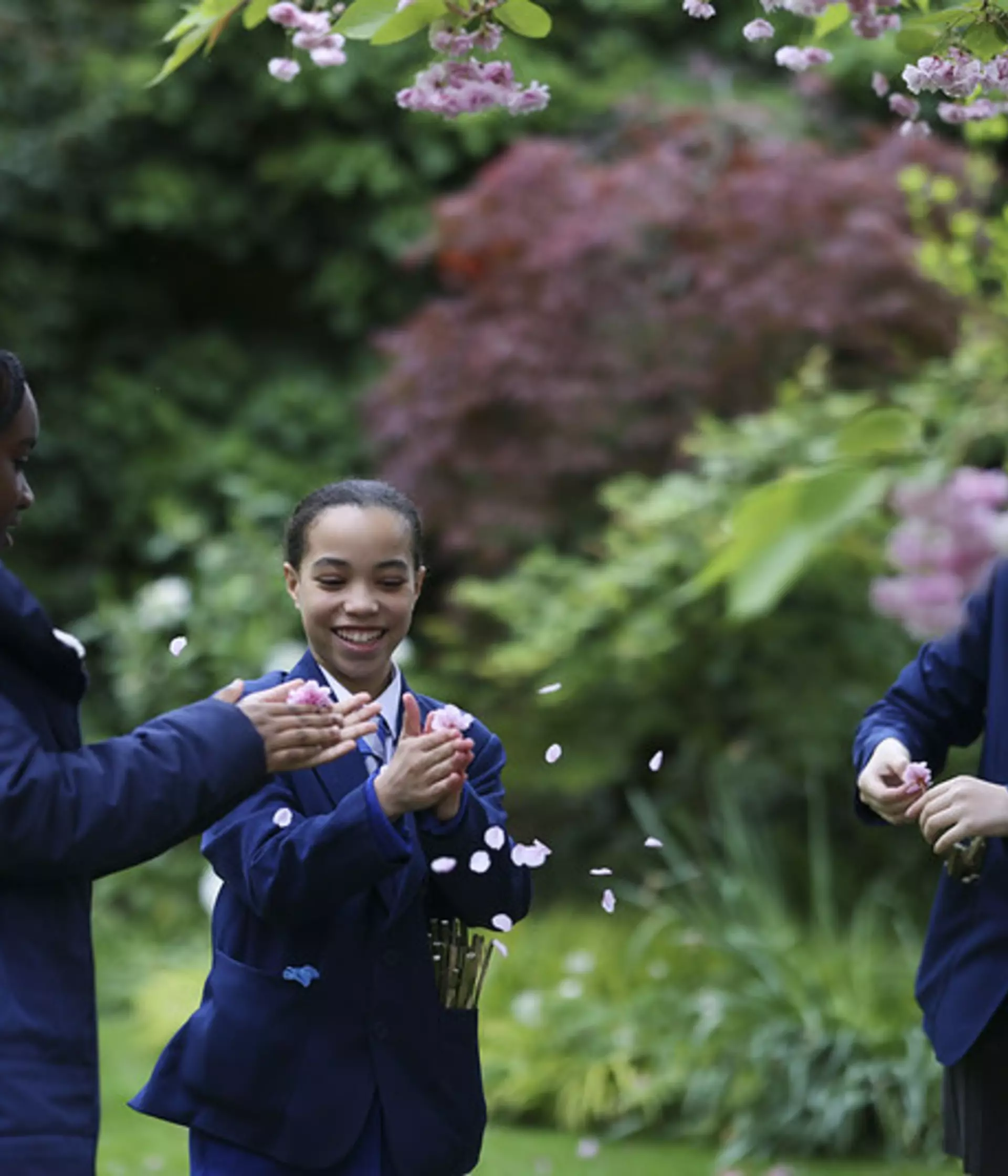To mark Earth Day 2024, pupils from Greater Manchester, South Wales and London schools had the unique experience of stepping inside 10 Downing Street to participate in a range of lessons led by our Head of Conservation Education Cat Hickey.
Children from Bowdon Church School in Altrincham, Saint Brides Major Church in Wales Primary School and St. Edward's Primary School, Marylebone took part in Lessons at 10, an initiative set up by Akshata Murty, wife of Prime Minister Rishi Sunak, with the aim of providing children with the opportunity to experience the history of 10 Downing Street and in doing so encourage a love for learning.
To mark this important day in the conservation calendar, we led workshops at Number 10, inspiring schoolchildren to explore UK wildlife conservation efforts firsthand. Through interactive sessions, including a game to illustrate habitat fragmentation, an invertebrate monitoring hunt to hone bug identification skills and the creation of seed capsules in the gardens of 10 Downing Street, students were immersed in the importance of ecosystem restoration and threatened species protection.
Mrs Murty welcomed the schoolchildren to 10 Downing Street, which today flung open its doors to become a classroom for the most special of Earth Day lessons. Pupils learned from Mrs Murty about the importance of Earth Day, and us each understanding the action we can take to protect the environment and our planet’s eco-system.
Session leader and our’s Head of Conservation Education Cat Hickey explained the role of our two zoos – London Zoo and Whipsnade Zoo – as well as the UK conservation work and projects undertaken at our global hubs in Kenya, Cameroon, Benin, Nepal, Thailand, Mongolia and the Philippines. The children played a dormouse conservation game to discover how habitat fragmentation impacts Hazel dormouse populations, in which students dressed as dormice or roleplayed as native trees in Downing Street’s historic state rooms. This was followed by a mini-lesson about the UK’s native oysters and their pivotal role in supporting the health of other marine life.
The children then took to the gardens of Downing Street, learning which small invertebrate species are native to UK gardens, and conducting their own hunt for mini-beasts.
Now experts in garden wildlife, the budding nature enthusiasts were taught how to make wildflower seed capsules and the role these can play in making more space for wildlife and homes for bugs in our own gardens.
Akshata Murty said: “It was wonderful to welcome the team from ZSL to Downing Street and see the joy and creativity they brought to the kids during Lessons at 10. Innovative conservation charities like this inspire people across the globe to restore wildlife by protecting critical species, maintaining ecosystems and bring people and the environment together. Today’s fascinating workshop, focussed on protecting the habitats of our threatened native species, was a great example of the support that amazing organisations like ZSL provide in schools across the UK.”
Matthew Gould, CEO of ZSL, said: “Nature is under serious threat, and we need to be inspiring young people to care about the environment. So ZSL is delighted to be working with Akshata Murty to do exactly this in 10 Downing Street. Engaging schoolchildren with the wildlife on their doorstep – and on the Prime Minister’s doorstep – is an important step to preserving our natural heritage.”
Our participation in Akshata Murty’s Lessons at 10 initiative builds upon its vital projects to engage children with the issues of wildlife conservation and threatened UK habitats. In 2023, the ambitious Wild Oysters Project – created by conservationists and education specialists at the Society and Blue Marine Foundation (BLUE) – supported the national science curriculum and engaged children (aged 8-14 years old) with the importance of caring for the UK’s native oyster population, which has declined by over 95%.
Our world-leading research outputs have been instrumental in advancing understanding of the dynamics of UK wildlife populations and the impact of dedicated conservation efforts.
In August, the conservation charity will undertake the Thames seal survey by land, sea and air where seal population is assessed, to give an indicator of the health of the population. In 2021, we published the first ever State of the Thames Report, which saw experts from 16 organisations demonstrate the huge improvement to the health of the Thames since it was declared ‘biologically dead’ in 1957.
Our pledge to support schoolchildren and local communities have access to a zoological education is supported by its Education Access Scheme, which gives local schools and colleges increased access to London and Whipsnade Zoos and its exciting learning opportunities. By working with schools, we to inspire and empower more children, young people and their families to care about wildlife and take action to protect it.
